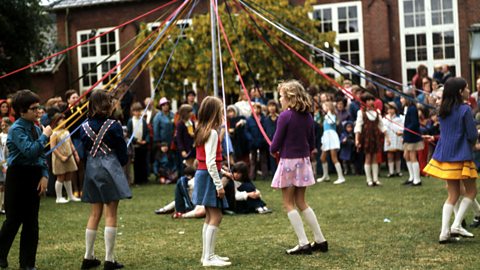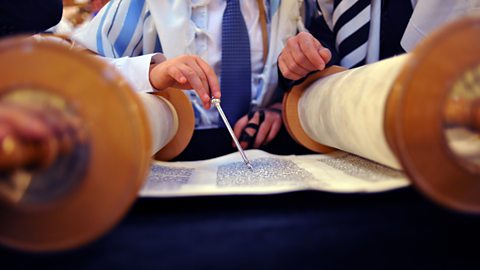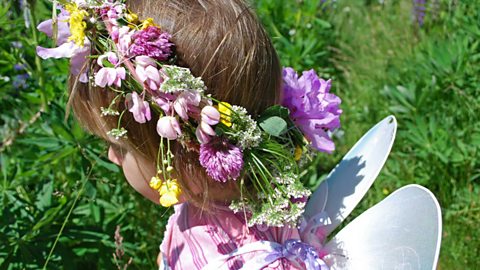Join Ben Faulks for a programme all about May Day. Celebrating the start of summer; learning from the past, and the people who can help us to do that.
Before the programme
- Look together at the focus image β do you have one of these in your school or elsewhere nearby? Share stories / experiences or talk about what itβs for.
- Talk about childrenβs experiences of dancing. When do they dance and why? What other occasions can children think of where people dance?
- What other celebrations do children know anything about? Why is remembering the past important.
- Have children ever been given an important job to do? What was it? How did it feel?
Programme content:
- Welcome and introduction: Welcome and introduction, including a traditional piece of May Day music. This programme includes information about the different aspects of the May Day celebrations.
- Song: βLetβs sing and danceβ (Come and Praise Beginning, no. 58). Encourage the children to join in with as much as they can.
- Story: Iβm to be the Queen of the May, Granny. An original story by Kate Fleming. Read by Harriet Carmichael. 50 years ago, Shirley Pepperβs Granny Daisy was crowned as the May Queen at her schoolβs May Day celebrations. 50 years later, Shirley dreams of being crowned the May Queen herself, but will she be chosenβ¦?
- Feature: We meet some children who are members of the Bishopβs Gandalfβs Morris Dancing troupe in Rochester, Kent to find out what they like about Morris Dancing.
- Reflection: on why the traditions of the past are an important part of celebrating, and how May Day helps us to celebrate the passing of winter and look forward to the coming summer months.
- Opportunity for prayer: children can turn their thoughts into their own prayer of thanks, or use the optional prayer from these Notes.
After the programme:
Talk about the story
- Why was Shirley Pepper so desperate to be the Queen of the May? Would you like to be May Queen? Why?
- Granny Daisy came in to Shirleyβs school to tell the class about what May Day was like when she was a girl. What did the children learn? Have you ever had a visitor come to your class to talk to you about something? What did you learn?
- Why do you think Mrs. Braithwaite chose Shirley Pepper to be May Queen?
- What do you think Shirley Pepper enjoyed most about the schoolβs May Day celebrations?
- Why do you think Granny Daisy needed to change the subject at the end of the story?
- There were lots of clues in the story about the different ways that May Day is celebrated β how many can you remember? Which would you most like to take part in?
Follow-up activities:
- Have a go at maypole / country dancing (there are CDs available commercially with music and instructions on). You could even put on a demonstration for parents to enjoy!
- Find out whatβs happening locally to celebrate May Day and talk together about what children enjoyed. Plan what you would want to include in a celebration of May Day for your class / school β and maybe schedule it in for next summer?!
- Find out about your schoolβs history β especially if you have photos or records from the past. When was it built? How has it changed? What would it have been like to go to school long ago? Write stories based on a school day from the past.
- Talk together about how the seasons change, and why the start of summer is something to be celebrated. Make a class collage about the joys of summer, including many of the things that children say they look forward to.
Click to display the image full size

KS1. Rogation Sunday. audio
Join Ben Faulks for a programme all about Rogation Day. Family relationships - parents.

KS1. Shavuot. audio
Join Ben Faulks for a programme all about the celebration of Shavuot and what it represents for Jewish people; rules and why we need them; treating others as individuals.

KS1. Midsummer - longest day of the year. audio
Join Ben Faulks for a programme all about Midsummer - enjoying the longest day of the year; customs and traditions associated with the longest day
